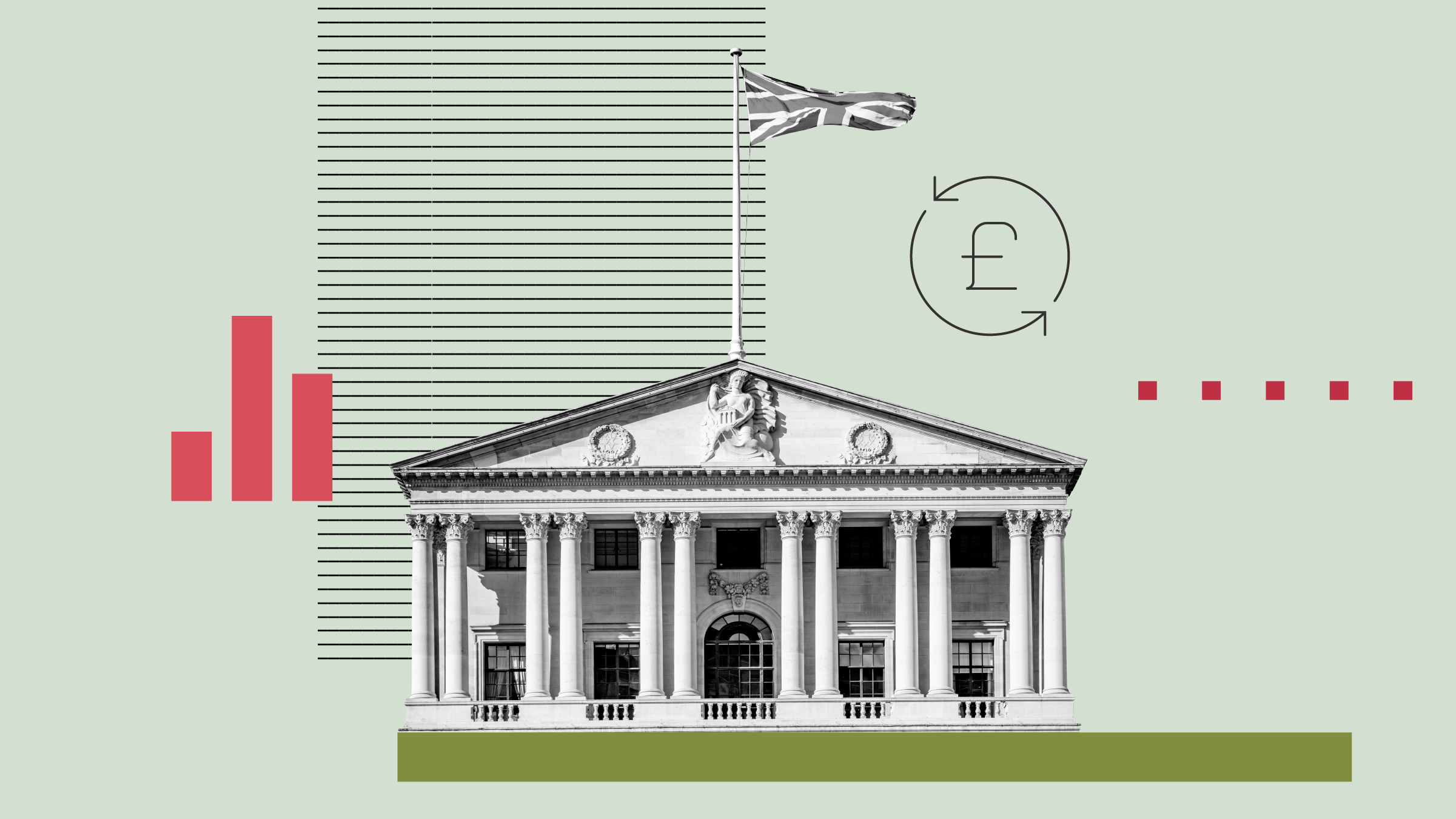Christine Benz: Hi, I’m Christine Benz for Morningstar. Stocks have sold off sharply over the past few weeks. Here to offer his insights on what the implications are for investors is John Rekenthaler. He is vice president of research for Morningstar.
John, thanks so much for being here.
John Rekenthaler: My pleasure, I’d say good morning, but I don’t know if it’s good morning yet.
Benz: No. Well, it is so far, but it may not stay that way.
Rekenthaler: That’s correct.
Benz: So, John, we’ve had this steep sell off in stocks. Some of the initial headlines were that it was driven by the S&P downgrade, it doesn’t sound like you think so though. What do you think is driving?
Rekenthaler: Obviously, that added to the uncertainty. But let’s face it. A downgrade of a sovereign country is something that’s based on very long-term information. There is not a lot of new information in there. There wasn’t much in what S&P has done. Really, the new information that’s been coming out is the continued crack-up in Europe, the split among the strong euro countries and the weak euro countries. That’s worrisome. That’s uncharted territory. Nobody has seen an attempted currency union like this, and really policymakers don’t know what to do. And that’s where the true uncertainty lies. Obviously the downgrade in the United States did not help.
Benz: As well as concerns over growth here in the U.S. too
Rekenthaler: That's correct.
Benz: That’s we kind of had a drip-drop of news last week about growth not being what many had hoped it would be.
Rekenthaler: Yeah, by my estimation, we’d have maybe one third of this drop if it were just about the U.S. between the growth concerns and the downgrade. The remaining two thirds is related to the really big European issues.
Benz: So, we had a conversation yesterday with Steve Leuthold, and it kind of struck fear into my heart, because he thought we would rally after the big sell-off, but he felt that it was just kind of a head fake and that it would be a true bear market that would continue. What's your take on a comment like that?
Rekenthaler: I’m ready to go partially that way. I do think a rally is probably in order. Whenever you get a downturn this steep, 6% Monday and 17% over the past three weeks or so, you tend to get margin calls and technical reasons why the market declines further than it should. Never mind panic, there are just technical reasons in the market why people who will rather leverage have to get out and it pushes price down further than they should.
So, in the short term I definitely think there is opportunity. I’m probably not suppose to say this at Morningstar, you know from a very kind of short-term trading perspective. Actually I am in the market a little bit today. I’m mostly a strategic investor, but I do a little bit of tactical and like to buy on dips and I think this is a good time to do so.
I do agree with Steve that we’re going to see more bumps. I hope that we’re not going to end up with these bumps too much below where we are now. It will be more bumping along at this level. But the Europe situation is far from resolved, and we have issues in the States, as well.
Benz: Right. So, I think a lot of us are naturally thinking back to this time or approximately this time three years ago when things were really terrible, the market was terrible and of course, you had the huge financial crisis unfolding. Do you see similarities with that or would you argue that it’s completely different and separate and actually not part of the same thing?
Rekenthaler: It’s neither the same nor different. It’s somewhere in the middle. Clearly, this feels like 2008. We see the same trades going on and the same flight safety. Bonds are rallying, commodity prices are going down except for gold, stock prices globally are going down, and financials are getting hit particularly hard. It looks and feels like it did in 2008 with the market anticipating a recession and financial concerns. So, that is worrisome. I do think it’s quite different in that, in 2008, we had the housing bubble and with housing prices much higher than they are now, we hadn’t faced any of that and gone through that.
Benz: It started to but it still had ways to go for sure.
Rekenthaler: Well, just barely.
Benz: Yeah.
Rekenthaler: I really think we’re not all the way through the problems, but they’re pretty well-known. And there is nothing remotely of that level to deflate right now. So, the financial institutions in the States, while their stocks did get beaten up Monday, are pretty much money-good, and we’re not going to have to rescue or bail them out like in '08. So I don’t think we’re going to have a financial crisis, at least not a full-blown one, maybe a small one in the States. It’s the Europe financial crisis that’s a possibility with the European banks having all that exposure to sovereign debt of the weaker countries.
So that would be more of the concern. But I do think in the States that we're different in a happy way, in a much happier way from 2008 in that respect, but I don't want to downplay the concerns. I don't want to say this is just a brief blip political panic, and just carry on. There are ongoing concerns, and we'll have to see how that plays out with the growth in Europe and the States, and the banking crisis in Europe.
Benz: Right. So John, you mentioned bonds, and I think people who have bonds are lucky they have them, but I'd like you to talk about the Treasury downgrade and how that should affect bond fund investors' thinking. Do they have reason to downplay Treasuries? Or do you think they should still be a component of people's fixed income portfolios? What's your take on a question like that?
Rekenthaler: Well, paradoxically, I actually think the downgrade of Treasuries is probably good news for the Treasury holder.
Benz: It was Monday, anyway.
Rekenthaler: It was on Monday. I know that sounds crazy, but honestly the downgrade in this situation is coming largely from concerns about the revenue side of the U.S. budget and about tax receipts and the growth. If Standard & Poor's saw more growth in the U.S. economy that would bolster tax receipts, they wouldn't have done this. We saw the same thing in 2002. The rating agencies downgraded Japan in 2002, basically, on much the same issues of kind of long-term growth concerns and a potentially stagnant economy and so forth. And bond yields today in Japan are lower. Bonds have done very well relative to other assets in Japan in 2002. Japan has been terrific. It's been a terrific currency too, which I am not sure the U.S. will be.
So I think this downgrade is really a sign of economic weakness and that's good for Treasuries. I have not been particularly bullish on Treasuries. I've been worried about the low yields and so forth, and we've talked about that. But I think this is actually a bullish sign, and I think for people in Treasuries, I don't think they're going to get hurt during the next few months by being in Treasuries. There may be an opportunity cost if the market rallies sharply, which it could, but we don't know. So that's what we saw right in early 2009. It wasn't that owning Treasuries has been bad the last two-and-a-half years, but there has been a lot of money to be made in other places.
Benz: So it sounds like your counsel to investors is to maintain a long-term mind-set but expect that the turbulence will continue also to the extent that you have a tactical/opportunistic sleeve of your portfolio, maybe look at some of these high-quality opportunities when they are on sale. Is there anything else that you've gleaned from past experiences like this that you could share with investors about how to manage through turbulent times like these?
Rekenthaler: Well, generally, I've been here 25 years almost and followed a lot of market downturns and upturns, and most of the time there aren't any hard and fast rules in investing. If there were, we'd find them, and then there wouldn't be hard and fast rules anymore. It's kind of a circular thing. But generally a contrarian stands this well, I'd say about three times out of four when you look at the headlines and you see what you are supposed to be doing per the headlines or at least where the money tends to be flowing. That's probably the wrong thing to do.
Benz: So getting defensive.
Rekenthaler: Getting defensive in the long term.
Benz: Buying gold maybe.
Rekenthaler: Well, I am not going to touch gold.
Benz: I don't want to be either, but it has been going up, up, up.
Rekenthaler: It's an asset class I've never understood. I don't have any gold. I wish I did in hindsight but I am still not ready to get there exactly.
Benz: Right, we all do.
Rekenthaler: But, yes, I would say there is a reason why normally one wants to have a strategic portfolio and one that's diversified because there are so many surprises to even the most savvy of investors. But I do think it's not a bad time to be tactical and get in there, and get a little bit of equity beta in your portfolio at least after the last three weeks' debacle.
Benz: Right, OK. John, thanks for sharing your insights. We appreciate you being here.
Rekenthaler: Thanks for bring me by.
Benz: Thanks for watching. I am Christine Benz for Morningstar.
























